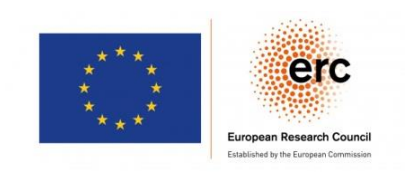When someone loses her or his job, this life course event has serious consequences on the physical and mental health of this individual. This pattern has been documented in a vast number of previous studies. But what impact does this event have on those closest to the unemployed? Anna Baranowska-Rataj and Mattias Strandh from Umeå University looked at the impact of unemployment on self-rated health of partners, married or otherwise.
Their study contributes to the emerging research on the effects of unemployment on health and well-being within couples by adopting a comparative perspective. They examined how the magnitude of the impact of unemployment on partner’s health varies across European countries with differing levels of welfare state support. These analyses considered also other country-specific factors such as policies supporting gender equality. The analyses were carried out using longitudinal data from the European Union Statistics on Income and Living Conditions (EU-SILC), covering 28 European countries.
The results from this study suggest that in a policy context of no financial support from the welfare state, individual health is negatively affected when a partner becomes unemployed. As income replacement rates increase, these negative effects on partner’s health are somewhat reduced. The moderating effects of financial support from the state are not very strong, though. Additional analyses revealed interesting differences in the magnitude of the effects of partner’s employment status across countries with diverging policies supporting gender equality. Through policies that support greater gender equality, women’s health may become less vulnerable to the changes in their partner’s employment status. This highlights that financial support from the state is not the only, and perhaps not the most important aspect of institutional setting that raises resilience of couples against economic shocks.

This project has received funding from the European Research Council (ERC) under the European Union's Horizon 2020 research and innovation programme under grant agreement No 802631 (HEALFAM: The effects of unemployment on health of family members) PI. Anna Baranowska-Rataj.